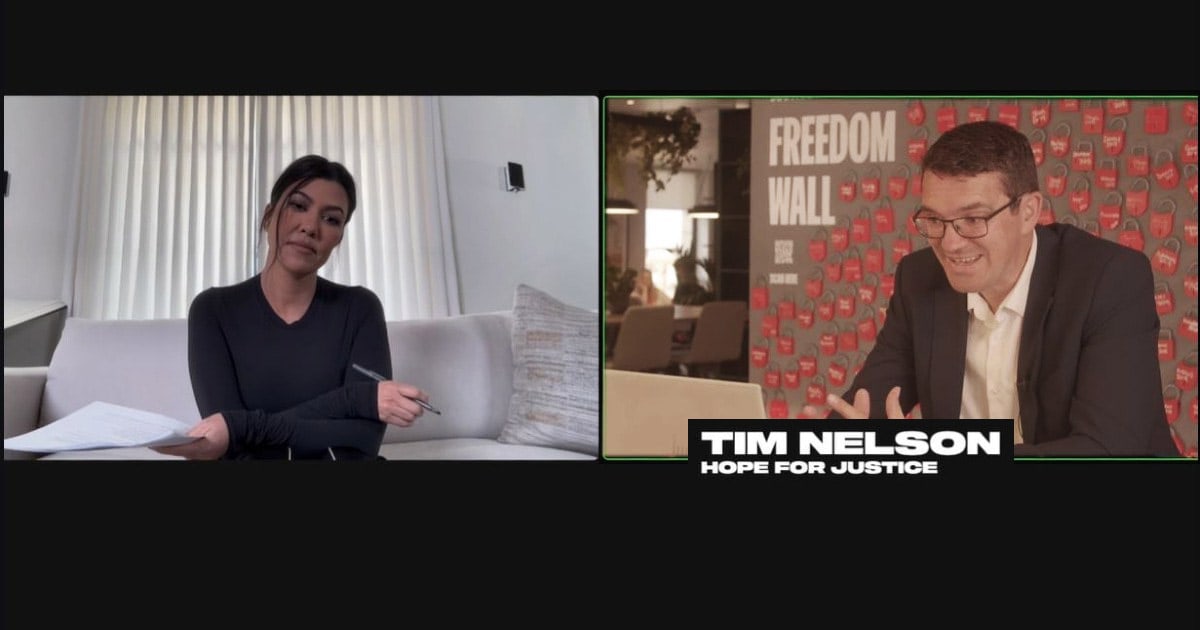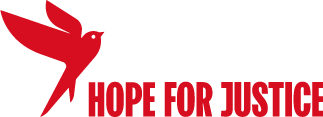Interview: Kourtney Kardashian Barker and Hope for Justice CEO, Tim Nelson
This article is reprinted from its original location at Hope for Justice‘s website. It was pulled from their RSS feed for your education.

Hope for Justice CEO, Tim Nelson, has shared key messages with global influencer and celebrity Kourtney Kardashian Barker as part of a new documentary series examining issues of exploitation and waste in the fashion industry.
The documentary series comes as a result of a collaboration between Kardashian Barker and fashion e-retailer boohoo, which has appointed her as its newest ambassador, to focus on the impacts of the fashion industry. boohoo is a member of Hope for Justice's business-focused social enterprise, Slave-Free Alliance, and has committed to taking practical steps to build resilience against modern slavery and exploitation in its own supply chains.
In the interview, Tim Nelson tells Kardashian Barker: “There are 75 million people estimated to be working in the garment industry, and what makes a good or bad company is not whether or not they have some form of modern-day slavery; it's whether they're prepared to look. [And] if they look, what will they do when they find it?”
The documentary series, to be shared on social media and streaming platform Hulu, hears from specialists in worker welfare, human rights, textile waste, upcycling, resale and vintage fashion.
In his interview with Kardashian Barker, Tim Nelson also speaks of the power of consumers to influence fashion brands when it comes to ethical supply chains, where workers' rights are respected and they are paid and treated well. He says: “The first thing any consumer can do is understand what the issue is. Because when people are educated, they can ask different questions. And I would dare everyone to do something on this issue. To get awareness, get understanding and to start making different choices. When people make those different decisions, it will be felt for those people who are the least, the last and the lost.
“Sometimes we can think we have no power. But as consumers, we can ask the questions. We can withhold our purchase until we see that these things are being done to protect the most vulnerable.”
Tim concludes: “My hope is that by people listening to this, that there might be people listening who themselves are in a place of modern-day slavery, and they might be able to connect with us or connect with the authorities and see themselves set free.”
Kardashian Barker thanks Tim for his insight, and in a statement she said: “I'm grateful for the opportunity to use my platform to drive conversations that lead to ongoing change and use my voice to share actionable tips with consumers on how we can play our own part. There's still lots of work to be done and improvements to be made, but I truly believe that any progress we can make when it comes to sustainability is a step in the right direction and will open up the conversation for future advancements.”
Tim Nelson also sits as a founding trustee on the Garment & Textile Workers Trust (G&TWT), which recently commissioned a major study into the lives and working conditions of Leicester's garment workers that identified nine key areas that the sector can improve upon.
This “Eyes on Trafficking” story is reprinted from its original online location.
 ABOUT PBJ LEARNING
ABOUT PBJ LEARNING
PBJ Learning is a leading provider of online human trafficking training, focusing on awareness and prevention education. Their interactive Human Trafficking Essentials online course is used worldwide to educate professionals and individuals how to recognize human trafficking and how to respond to potential victims. Learn on any web browser (even your mobile phone) at any time.
More stories like this can be found in your PBJ Learning Knowledge Vault.
EYES ON TRAFFICKING
This “Eyes on Trafficking” story is reprinted from its original online location.
ABOUT PBJ LEARNING
PBJ Learning is a leading provider of online human trafficking training, focusing on awareness and prevention education. Their interactive Human Trafficking Essentials online course is used worldwide to educate professionals and individuals how to recognize human trafficking and how to respond to potential victims. Learn on any web browser (even your mobile phone) at any time.
More stories like this can be found in your PBJ Learning Knowledge Vault.

